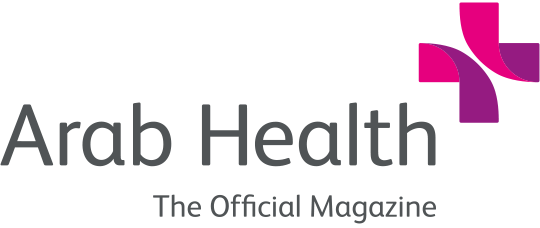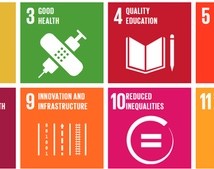Advancing Sustainable Social Development and Well-Being For All
George R Lueddeke, PhD , Chair, One Health Education Task Force , One Health Commission Southampton, United Kingdom, 19 March 2017
The UN-2030 agenda for sustainable development
While most will understandably not recall Friday, 25 September, 2015 as an extraordinary day, it may in due course be seen as highly significant for the future of the planet and people. On that date the 193-Member United Nations General Assembly “formally adopted the 2030 Agenda for Sustainable Development, along with a set of bold new Global Goals, which former Secretary-General Ban Ki-moon hailed as a universal, integrated and transformative vision for a better world.”
The Goals build on the historic Millennium Development Goals (MDGs), “which in September 2000, rallied the world around a common 15-year agenda to tackle the indignity of poverty”. In his opening address to the UN General Assembly (UNGA) on 25 September, the UN Secretary-General hailed the new framework as an agenda for shared prosperity, peace and partnership as it “It conveys the urgency of climate action,” and “is rooted in gender equality and respect for the rights of all.” Resonating with one of the main aims of this brief article, the UNGA members also vowed to ensure “the lasting protection of the planet and its natural resources.”
Global challenges in the 21st century
However, while the UN September summit was filled with goodwill and optimism, the challenges facing the planet continue to be enormous though, arguably, not insurmountable given the strength of the human spirit and creative enterprise. They call for global responses that address intractable issues relating, among others, to conflicts and terrorism, population growth and urbanization made especially vulnerable by climate change and fragile ecosystems; renewed nationalism coupled by social intolerances; and continuing economic uncertainties, many precipitated by geopolitical and economic forces, including on-going self-interests and corruption across a wide range of human activity.
One of the main hurdles facing global decision-makers is harmonising the vast imbalances and inequities that continue to characterize much of the world today with only about two out of 7.4 billion people reaping the benefits of the more economically advanced world. Poverty and fear are felt by everyone but perhaps most acutely by children and young adults. Far too manyhave been and are presently being displaced or caught in conflict and war zones and suffer the most – physically and emotionally. Reflected starkly in the UNICEF report, ‘Committing to Child Survival: A Promise Renewed Progress Report 2015’ (5), we are reminded that while “Globally, major progress has been made in improving child survival the toll of under-five deaths over the past two decades is staggering: between 1990 and 2013, 223 million children worldwide died before their fifth birthday.” Moreover, according to UNESCO’s 2015 Global Monitoring Report, Education For All 2000-2015: Achievements and Challenges, there are still “58 million children out of school globally. Of these children, 25 million are in the rural, low-income regions.”
Progressing the UN -2030 agenda for sustainable development through the One Health concept
The complex and growing global challenges necessitate “renewed global partnerships.” To gain the support of civil society top priorities for the UN SDGs are twofold: first, planners need to reinforce and urgently communicate a compelling humanitarian justification for the SDGs to convince the public that the goals are critical for the survival of our planet and people. In many cases it is about giving individuals caught in life-threatening situations not of their own making a reason to live. In this regard, we need, as the former Secretary-General strongly advocated, “to look beyond national boundaries and short-term interests and act in solidarity for the long-term”, a lesson from history that should not go unnoticed in many parts of the world.Marco Lambertini, director general of World Wildlife Fund International (WWF), observes in the Living Planet 2015 that the status quo is unsustainable:
…in less than two human generations, population sizes of vertebrate species have dropped by half. These are the living forms that constitute the fabric of the ecosystems which sustain life on Earth—and the barometer of what we are doing to our own planet, our only home. We ignore their decline at our peril, and should cause us to ‘stop and think.’
He challenges global leaders to respond to three main questions:
- What kind of future are we heading toward?
- What kind of future do we want?
- Can we justify eroding our natural capital and allocating nature’s resources so inequitably?
His concerns go beyond the UN -2030 global goals and demand finding, first and foremost, a lasting ‘unity around a common cause,’ and echo former Secretary-General Ban Ki-moon’s global SDG partnership priorities. For the WWF Director General the time has come for the public, private and civil society sectors to be proactive and to “pull together in a bold and coordinated effort” and for “Heads of state” to think globally; businesses and consumers, “to stop behaving as if live in a limitless world” -- before facing inevitable and potentially disastrous consequences.
The One Health movement and ‘the world we need’
The One Health movement - spearheaded by the One Health Commission and the One Health Initiative - that recognizes ‘the inter-dependencies in the health (and well-being) of people, other animals and the environment in which we live” unquestionably provides the essence for the enduring “unity” the WWF Director General is seeking.
Given the myriad ideological mindsets that appear to divide us in the 21st century, ensuring the longevity of the planet and people is arguably the only dimension upon which we might build a sustainable future. Doing so will increasingly demand going beyond personal gain and self-interests and placing much greater emphasis on collaboration rather than competition, on finding peaceful means to deal with crises and ensuring that ethical responsibilities are rooted in interdependencies and the sanctity of life. Our global mission is nothing less, as UNESCO Director-General Irena Bokova articulated several years ago, than evolving “a new humanism that reconciles the global and the local, and teaches us anew how to build the world” while simultaneously facing “our greatest common challenges, particularly respect for the environment.”
As things stand, the SDGs coupled with One Health values and principles, espoused in the UN direction-setting report, Transforming our world: the 2030 Agenda for Sustainable Development,may offer us the best chance yet to “free the human race from the tyranny of poverty and want and to heal and secure our planet,” while balancing ‘the three dimensions of sustainable development: the economic, social and environmental.”
With an eye on the future, policy- makers are particularly urged to listen to the ‘children’s voices,’ reinforced at the Children’s Summit on the World’s Sustainable Development Goals. Among their aspirations, their pleas for equality, health, security, and recognizing the devastating effects of social intolerances - child labour, child marriage and child trafficking - cannot be ignored. For the children and the younger generation as a whole education and working together are the keys to the future as they must surely be for us all.
Preparing society to create the ‘World We Need’ through One Health education
The One Health Commission together with the One Health Initiative along with other partners are presently working on a global education project proposal to support leading university-affiliated faculties or schools of education to enable learners from early years to tertiary education and beyond to a gain better understanding of and appreciation for the values and principles underpinning the One Health concept and approach. The initiative is simply called ‘Advancing the SDGs through One Health Education’. Three central tenets that weave through the learning process include recognition
- that all life – human, animal, plant - is interconnected;
- that our future on the planet depends on taking care of ourselves and each other within an ecologically sustainable environment regardless of who we are and where we live;
- that learning is making personal sense of the world and taking individual and collective responsibility to ensure the planet can continue to thrive through preventive measures - respecting cultural diversity and holistic care for the community of life.
A final word: It is becoming increasingly clear that the 20th and early 21st century imperious and outdated fixation on “the strong overpowering the weak” alongside an oversimplistic understanding of the world and ourselves has to change. Current events painfully demonstrate daily that we must find more creative and constructive ways to engage with each other and the planet and evolve a much more fluid or organic and altruistic approach to decision-making across all human activity, drawing on a future consciousness to inform the present. As the World Economic Forum cautions, we must be careful: “We’re at the crossroads for humanity. It could be our best century but it could be our worst because our capabilities of spreading risk are greater than ever before”. Implications for refashioning our institutions and systems and “transforming our current attitudes to virtually all aspects of society and the economy,” and that also may hold lessons for other nations, are considerable and likely inescapable, according to Dr Alexander Likhotal, president of Green Cross International.
Evolving new strategies that support sustainability - as the World Veterinary Association and the World Medical Association have recently agreed – may be especially significant in light of Nobel physicist Professor Stephen Hawkins’ plea that “more than at any time in our history” our species needs to ‘work together’ and ‘to break down, not build up, barriers within and between nations’. Moreover, the prospect of making a fundamental difference to how we relate to the world and to each other becomes even more urgent and compelling when we take on board Sir David Attenborough’s closing comments in his latest seminal Planet II documentary series reminding us that we need a world “fit for all life on earth,” not just humans’. In this regard, Edward Lucas’ reminder - while senior editor at The Economist – may merit particular attention at this most fragile moment of our planet’s 4.6 billion year history, that is: “For a start, we need to accept that business and finance are the servants of our civilization, not its masters.”
In summary, altering our way of thinking that regards the world as a means rather than an end may be one of the most significant and profound steps we need to take, and not without recent precedent. The Paris Climate Agreement at the end of 2015 and reduction in emissions attested to what can be done when 196 countries decide to unite against a common global threat. The same holds true for many other aspects that sustain life on the planet. To these ends, getting young minds involved with the global picture, such as the UN-2030 Agenda for Sustainable Development and the ‘One World, One Health’ concept and approach through a collaborative learning process, is surely the best path for securing the health and well-being of our planet and people. Failure to do so cannot be an option.


